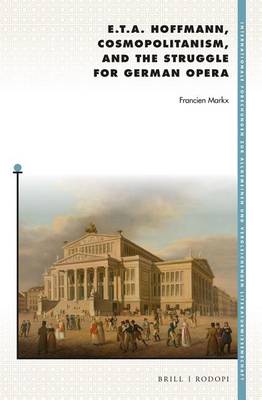Internationale Forschungen Zur Allgemeinen Und Vergleichende
1 total work
E. T. A. Hoffmann, Cosmopolitanism, and the Struggle for German Opera
by Francien Markx
Published 2 November 2015
In this first monograph on E. T. A. Hoffmann and opera, Francien Markx examines Hoffmann's writings on opera and the challenges they pose to established narratives of aesthetic autonomy, the search for a national opera, and Hoffmann's biography. Markx discusses Hoffmann's lifelong fascination with opera against the backdrop of eighteenth-century theater reform, the creation of national identity, contemporary performance practices and musical and aesthetic discourses as voiced by C. M. von Weber, A. W. Schlegel, Heine, and Wagner, among others. The book reconsiders the traditional view that German opera followed a deterministic trajectory toward Wagner's Gesamtkunstwerk and reveals a cosmopolitan spirit in Hoffmann's operatic vision, most notably exemplified by his controversial advocacy for Spontini in Berlin.
